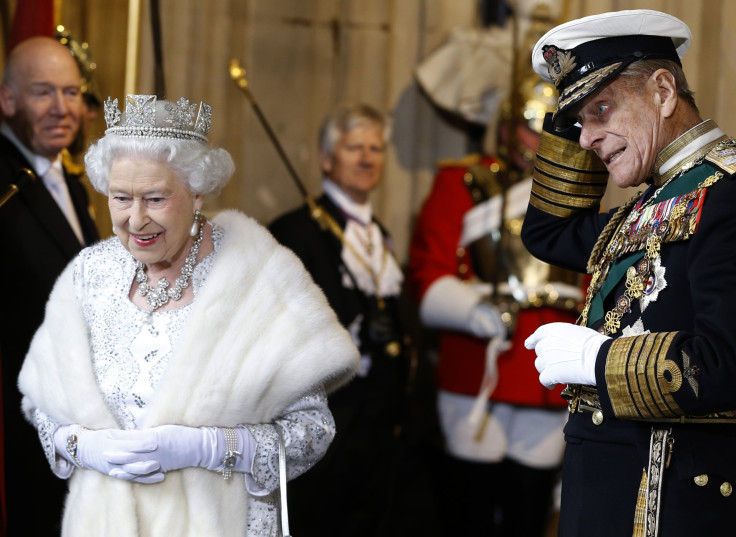Royal Baby: Why He Will Have To Wait A Very Long Time To Become King

The birth of a royal baby boy to the Duke and Duchess of Cambridge has sparked excitement across the world (that is, among those who care about the British royal family). The infant (whose name has not been established yet, although he does have the title of “Prince of Cambridge”) is now third in line to the British throne behind his grandfather, Charles, Prince of Wales, and his father.
But if family genes are any indication, it may be a very, very long time before the brand new price ever ascends to the throne. The Windsor family enjoys not only immense wealth, splendor and glamour – but also longevity. Consider that the newborn’s great-grandmother, Queen Elizabeth II, just turned 87 three months ago and appears to be in relative good health. (Of course, she would have to die before her son, grandson and great-grandson start worrying about the king business).
Elizabeth II may still be around for a while. Her mother – who was born Elizabeth Angela Marguerite Bowes-Lyon, but is better known as "Queen Elizabeth the Queen Mother" -- lived to be almost 102 when she died in early 2002. The Queen Mother lived such a long life, that she was the last "Empress of India." Indeed, when the Queen Mother was born, in 1900, Queen Victoria (Queen Elizabeth II’s great-great-grandmother) was still alive. Victoria died in January 1901, at the age of 82, having reigned as queen for 64 years, the longest such tenure (so far) of any British monarch. Victoria’s longevity was truly extraordinary -- consider that when she was born, the average life expectancy in Britain was in the upper 30s (meaning, she lived a half-century longer than the average person in the UK). By the time she died, the average life expectancy had only climbed to about 48.
Now, in the early 21st century, where the average life expectancy in Britain is over 80, Elizabeth II’s long life is not all that unusual. However, one must consider that when Elizabeth II was born, in 1926 (ironically, the same year that Britain introduced its first contributory state pension system), only about one-third of British men and 40 percent of women would live to reach the age of 65). Moreover, if Elizabeth II makes it to September 2015, she will surpass Victoria’s record of years on the throne.
But there is also longevity on the other side of the royal family; that is, if one looks at the royal baby’s paternal great-grandfather’s line. Elizabeth II’s husband, Prince Philip, Duke of Edinburgh, is still kicking around at the age of 92, although he has suffered bouts of periodic hospitalizations in recent years. Philip’s father, Prince Andrew of Greece and Denmark, died in 1944 at the age of 62, although his passing was likely accelerated by the effects of the war and the emotional toll wrought by enforced separation from his wife and children. Philip’s mother, Princess Alice of Battenberg, died in 1969 at the grand old age of 84.
Granted, the family of the royal baby’s mother, Kate Middleton, must also be taken into consideration, however details on her ancestors are not as easily available as those of the Windsor clan.
At any rate, perhaps we can calculate when the infant will become king. Let us first assume that even as life expectancy rates have climbed over the past century, members of the royal family would reasonably expect to exceed those averages, given their wealth and access to the best medical care (although this gap would, of course, not be as great as that enjoyed by Victoria in the disease-ridden 19th century).
The baby’s grandfather, Prince Charles is now 65 -- in the year he was born, 1948 (ironically, the year the National Health Service was established), the average life expectancy rate in the UK for men was about 66. He has almost reached that. By 1982, when the baby’s father, Prince William, came into the world, the average British man was expected to live until 71.
Let us assume that (barring any accidental deaths or unforeseen tragedies) Charles lives to be 80 and William lives until he is 85 (both conservative figures given family lineage). That would mean that Charles would die in the year 2028 and William will expire in the year 2067. By then, the unnamed newborn boy will already be 54 years old. However, if Charles and William take after Prince Philip, the new royal baby will have an even longer wait.
© Copyright IBTimes 2024. All rights reserved.











